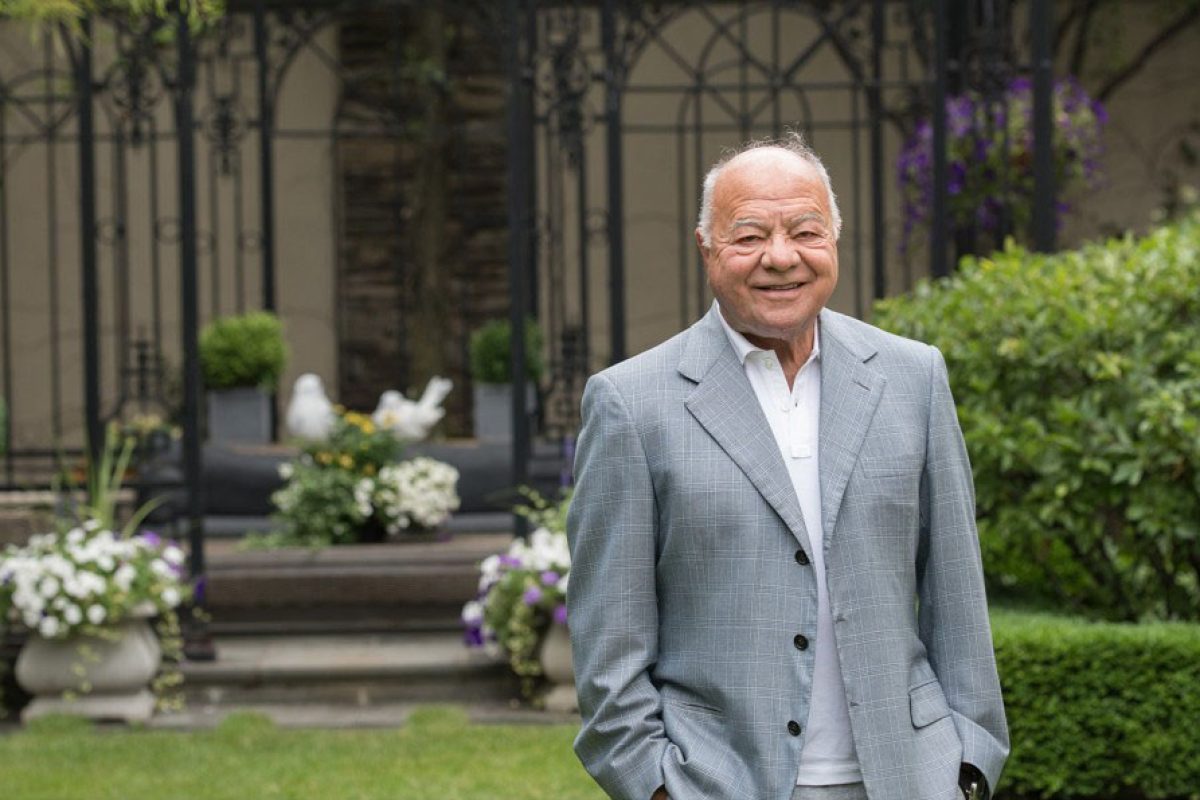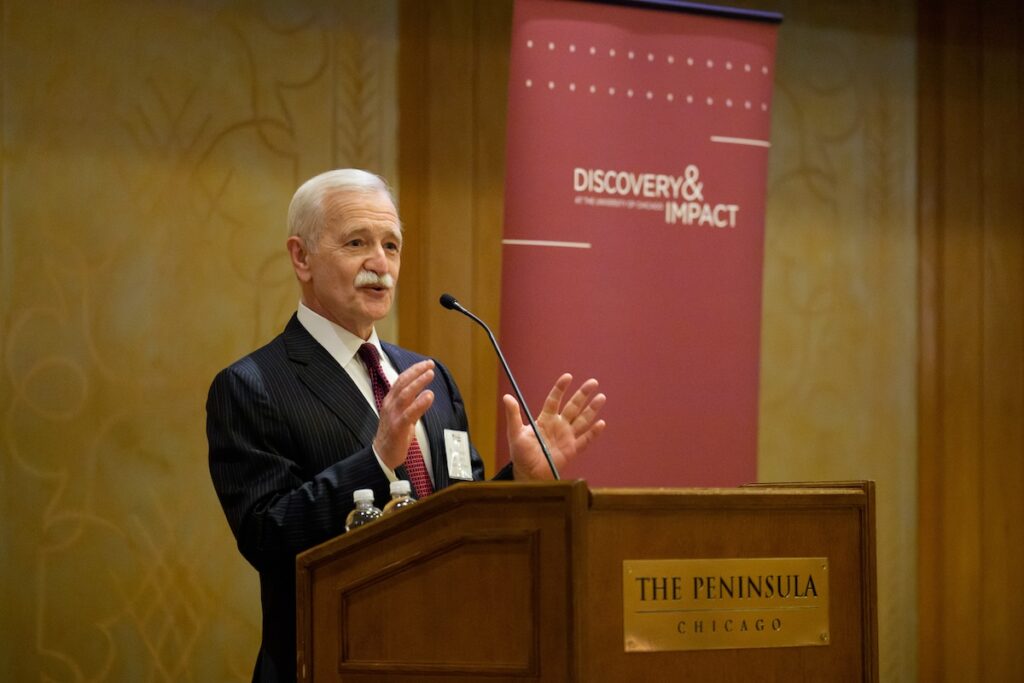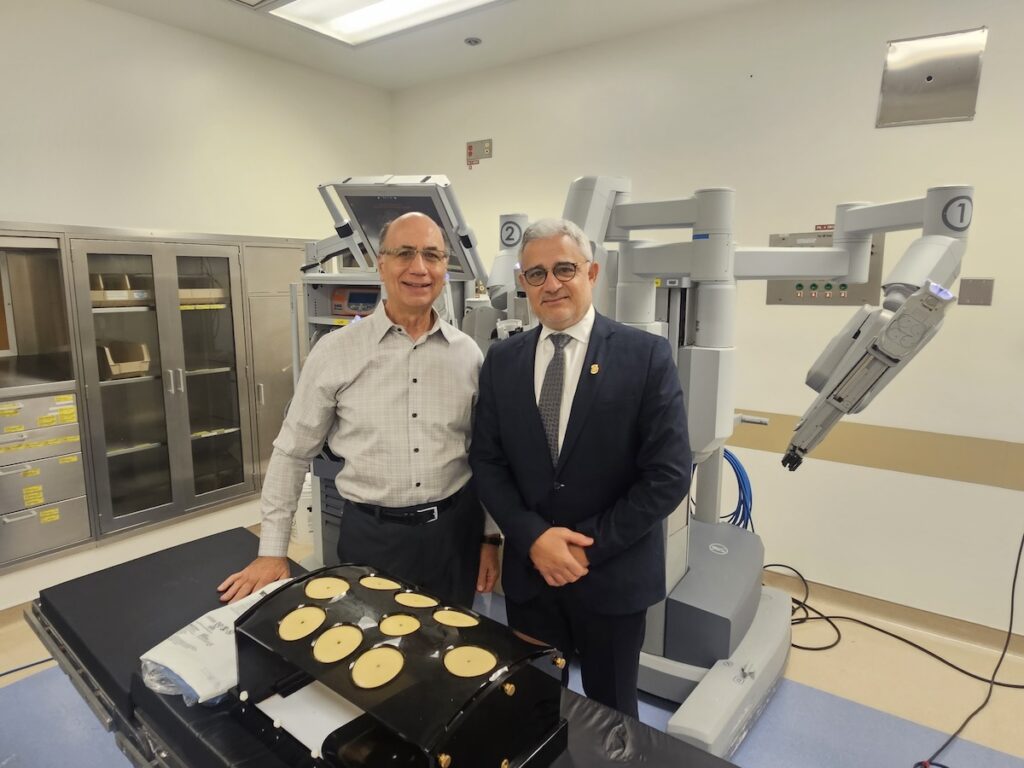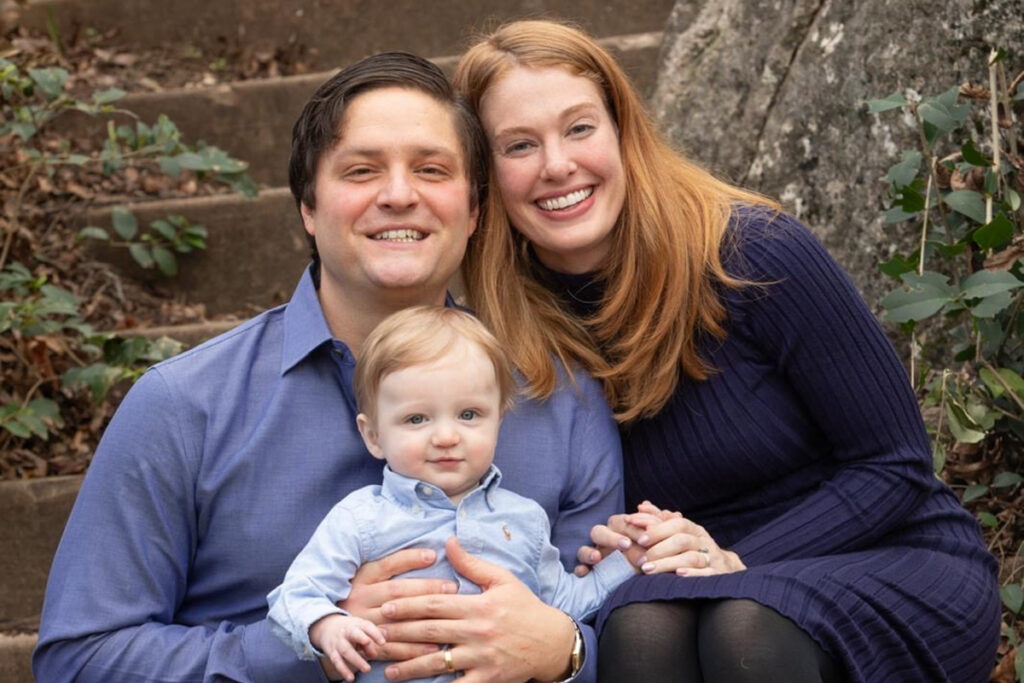Richard Parrillo knows the University of Chicago Medicine better than most. He has been seeing his doctor, Mark Siegler, MD, for three decades, has undergone treatment for three types of cancer, and receives ongoing treatment for a heart condition.
But it isn’t just the excellent care that keeps him coming back.
“I feel a certain kinship with UChicago Medicine,” Parrillo said. “The doctors who’ve treated me are the best of the best. They are not only nationally known physician-scientists, they are also good friends.”
Parrillo counts many current and former faculty members among his friends at UChicago Medicine, including Dr. Siegler, Nishant Agrawal, MD, section chief of Otolaryngology-Head and Neck Surgery and director of head and neck surgical oncology, and Nir Uriel, MD, former director of heart failure, transplant, and mechanical circulatory support at UChicago Medicine.
“Nir and I developed a great relationship that extended beyond the hospital,” Parrillo said. “We went to football and baseball games together. Despite his busy schedule, Nir always made himself available to see me when I needed an appointment.”
To show his gratitude and to help the more than 92 million Americans living with cardiovascular disease, Parrillo recently made a $5 million gift establishing the Richard P. Parrillo Family Center for Clinical and Translational Cardiology at UChicago Medicine. The center will play a critical role in accelerating the pace of progress in cardiology care by bringing the most promising new technologies and drugs to be tested at UChicago Medicine via clinical trials.
“The Parrillo Center will enable us to create the core infrastructure necessary to design and implement innovative clinical trials, allowing our patients to be among the first to benefit from leading-edge cardiology treatments,” said Kenneth S. Polonsky, MD, dean and executive vice president for medical affairs at the University of Chicago.
Today, Parrillo is two years cancer-free and continues to recommend UChicago Medicine to friends and family.
“I’ve received great care, so I’ve recommended UChicago Medicine to others, and they’ve also received the best medical treatments available,” Parrillo said.
Parrillo’s gift not only demonstrates his gratitude to the physicians who treated him, it also embodies a philosophy of giving back.
“I think people who’ve been successful need to contribute more to help those who haven’t had the same success or opportunities,” Parrillo said.
In 1989, Parrillo founded United Automobile Insurance Group, which is now one of the largest privately held property and casualty insurance companies in the United States.
“I think, when you’ve worked hard and been fortunate, it’s time to give back,” Parrillo said.
In addition to his most recent gift, Parrillo previously established the Richard Parrillo Family Professorship in Healthcare Ethics at the University of Chicago Medicine, which is currently held by Marshall Chin, MD, MPH, an expert in improving care for vulnerable patients with chronic diseases, including diabetes.
Parrillo also actively supports the Special Olympics and the Italian American Sports Hall of Fame. This past year, Parrillo, who previously served as the second president of the Special Olympics, joined Anne Burke, one of the founders of the Special Olympics, to attend the event’s 50th anniversary at Soldier Field in Chicago.
Parrillo grew up in Oak Park, Illinois, and now spends his time divided between Chicago, Florida, and Wisconsin. Despite his busy travel schedule, he keeps returning to UChicago Medicine.
“UChicago Medicine has some of the best doctors in the country, and in some cases, the world,” Parrillo said.
As for his heart care, Parrillo is in good hands.
“I’m now seeing Dr. Gene Kim,” Parrillo said. “He’s one of the smartest doctors I’ve ever met. And he’s a very nice guy, too.”
Parrillo looks forward to seeing how his investment will help improve cardiovascular care for patients and drive faster progress.
“There should be more philanthropy,” he said. “Having funds to do medical research is very important. It not only allows us to more rapidly test different treatments and technologies, but it also helps to attract the most talented experts who will develop tomorrow’s innovations.”
Published September 2019




